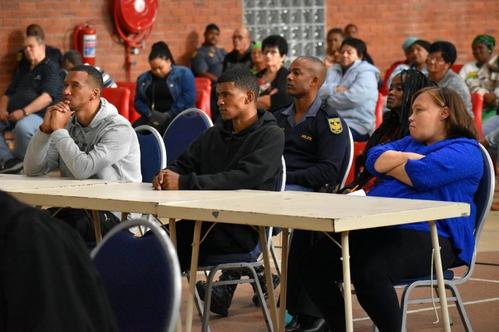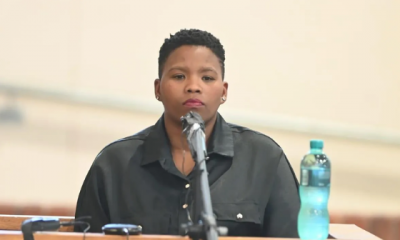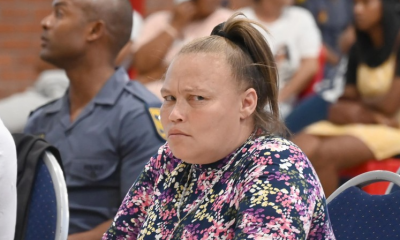411
Defence Casts Doubt on Key Witness in Joshlin Smith Case, Citing Contradictions in Testimony

The trial of the accused in the Joshlin Smith case has entered its final phase, with the defence raising serious concerns about the reliability of the State’s main witness. Lourentia Lombaard, who initially faced charges herself, became a key State witness after agreeing to testify under Section 204 of the Criminal Procedure Act. However, the defence is now questioning the consistency of her testimony, arguing that it is riddled with contradictions.
Advocate Fanie Harmse, representing Jacquen “Boeta” Appollis (Accused 1), outlined several discrepancies between Lombaard’s different accounts. According to Harmse, Lombaard’s initial Section 204 statement, her confession, and her oral testimony in court conflict with one another on critical points. Harmse emphasized that the two versions of events — her 204 statement and her testimony — cannot both be true.
One of the key points raised by Harmse is Lombaard’s conflicting statements about the timeline of events. Lombaard testified that a conversation about selling Joshlin Smith occurred on Sunday, but under cross-examination, she admitted that it may have actually happened on Monday morning. Harmse called this a material conflict, arguing that such inconsistencies damage the credibility of the witness.
The case centers around the tragic disappearance of six-year-old Joshlin Smith from Middelpos, Saldanha Bay, on February 19, 2024. Smith’s mother, Racquel “Kelly” Smith (Accused 3), allegedly left Joshlin in the care of Appollis that day. Co-accused Steveno van Rhyn (Accused 2) is also accused of being involved in a plan to traffic the child.
Also Read: “He Was Tortured”: Shocking Claims in Joshlin Smith Confession Battle
Lombaard’s testimony claimed that there was a discussion about selling Joshlin, but her account has raised further questions. For instance, she gave differing versions of the alleged handover of Joshlin to a white VW Polo — initially stating that Kelly and Appollis walked together, but later suggesting Kelly may have acted alone. Harmse pointed out that these contradictions suggest a lack of coordination between Accused 1 (Appollis) and Accused 3 (Kelly Smith), challenging the State’s theory of a joint plan to traffic the child.
The defence also raised concerns about other elements of Lombaard’s testimony. For example, Lombaard mentioned a woman named “Maka Lima” (Phumza Sigaqa), but this claim was later dismissed by the State. Harmse questioned why the State was attempting to discredit these statements while simultaneously insisting on a trial-within-a-trial to assess their admissibility.
As the trial moves toward its final arguments phase, the defence is determined to cast doubt on the key evidence presented by the prosecution. The contradictions in Lombaard’s testimony have become a central issue in the case, potentially undermining the State’s case against the accused.
The trial has captured widespread public attention, with many eagerly awaiting the final outcome. As the legal arguments unfold, the reliability of key witness testimony remains a pivotal factor in determining the future of the accused. The case is set to have lasting implications, not only for those involved but for the broader justice system as well.
{Source: IOL}
Follow Joburg ETC on Facebook, Twitter , TikTok and Instagram
For more News in Johannesburg, visit joburgetc.com





















